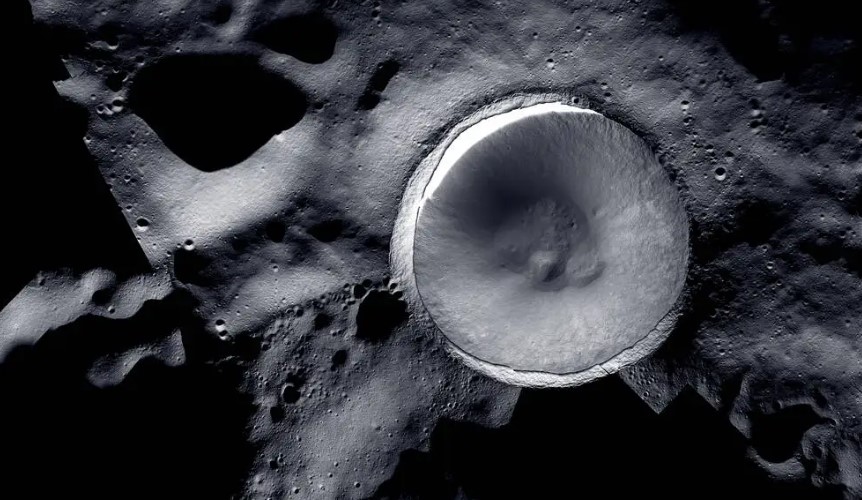China’s Chang’e-7 Mission
China’s Chang’e-7 mission launched in 2025, project aims to investigate the Moon’s south pole for potential water resources. The mission employs an innovative flying robot, designed to traverse the Moon’s challenging terrain. This initiative is part of China’s broader strategy to establish a permanent research base on the Moon.
Objectives of the Chang’e-7 Mission
- The primary goal of the Chang’e-7 mission is to locate and analyse water ice deposits at the Moon’s south pole.
- Scientists believe that these deposits could provide vital resources for future lunar habitats.
- Water could be used for drinking, oxygen production, and even as rocket fuel.
- This would reduce the need for supplies from Earth.
The Flying Robot Technology
- Unlike traditional rovers, the Chang’e-7’s flying robot can leap, crawl, and soar.
- It employs rocket propulsion to navigate areas that were previously inaccessible.
- The robot’s six-legged design allows it to traverse rugged terrain.
- It is equipped with advanced navigation systems and scientific instruments powered by solar energy and fuel.
- This technology enables it to gather detailed environmental data.
Importance of Water on the Moon
Water on the Moon is crucial for future exploration and colonisation. It can support human life and facilitate long-term missions. The presence of water ice could also help in producing fuel for rockets. This self-sufficiency is essential for reducing costs associated with lunar missions.
The South Pole’s Unique Environment
The Moon’s south pole is particularly interesting due to its permanently shadowed regions. These areas may contain water ice that has remained frozen for billions of years. The Chang’e-7 mission aims to explore these shadowed craters. About this unique environment is key to unlocking the Moon’s resources.
Future Implications of the Mission
The success of the Chang’e-7 mission could pave the way for future crewed missions to the Moon. China aims to establish a lunar research station by 2030. This would allow for sustained human presence and research on the Moon. The mission also positions China as a leader in space exploration.
Broader Context of Lunar Exploration
Lunar exploration is becoming increasingly important globally. Various countries are investing in missions to the Moon. The search for water and other resources is a common goal. International collaboration may play a role in future lunar initiatives.
Month: Current Affairs - February, 2025
Category: Science & Technology Current Affairs







